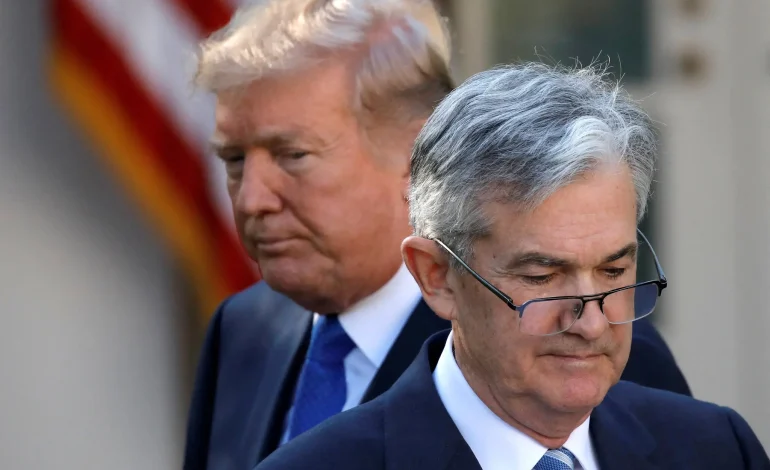Financial markets are on alert following reports that President Donald Trump may soon announce a successor to Federal Reserve Chair Jerome Powell, well ahead of the end of Powell’s term, the New York Times reports.
The move, if confirmed, could effectively create a “shadow Fed chair,” a development that some investors worry could undermine the perceived independence of the central bank.
The Wall Street Journal reported that Trump is considering naming a replacement for Powell as early as this summer. This would mark an unusual and potentially destabilizing step, as Powell’s term does not officially expire until 2026. Trump has frequently criticized Powell in recent weeks over what he views as a slow pace of interest rate cuts.
The market reaction has been swift. The US dollar weakened to a three-year low, and US Treasury bonds rallied as investors digested the implications of a shift in Fed leadership. Concerns center on the possibility that an early announcement could signal greater political influence over future monetary policy decisions.
Potential candidates under consideration reportedly include former Fed Governor Kevin Warsh, Trump economic adviser Kevin Hassett, current Fed Governor Christopher Waller, and David Malpass, former head of the World Bank. Scott Bessent, Trump’s Treasury Secretary, has also been floated as a possible candidate but is said to prefer staying in his current role.
While some of the individuals mentioned have experience in monetary policy or global finance, analysts are concerned about the optics and impact of undermining Powell’s authority before the end of his term. Market watchers remember similar tensions during Trump’s first term, including discussions about removing Powell, which were ultimately abandoned after market backlash.
A premature announcement could challenge the Fed’s reputation for policy independence, a cornerstone of its credibility in global markets. Renowned investor Stanley Druckenmiller previously called the idea of a shadow chair “a horrible idea and irresponsible.”
Analysts say Trump may try to shape the narrative carefully if he proceeds. He could argue that early clarity on leadership would reduce uncertainty and align monetary policy with his administration’s economic priorities. Whether investors and institutions would accept such framing, however, remains uncertain.










The latest news in your social feeds
Subscribe to our social media platforms to stay tuned